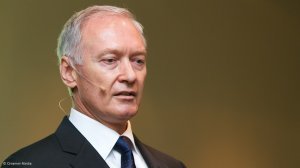Engineering and contracting services company Murray & Roberts (M&R) has said the voluntary administration of its Australian businesses from December 2022, continued to impact it throughout the financial year ended June 30.
The most notable issue for the company remains servicing its corporate debt in South Africa without dividend flows from the Australian operations, it adds.
Immediately following the loss of Clough and RUC in Australia, which were both strong cash contributors, M&R was left with a highly geared balance sheet and high-cost structures in South Africa relative to the reduced size of the group.
The board agreed to a deleveraging plan with South African banks that involves several measures to repay all debts due, which peaked at about R2-billion in April 2023.
M&R has since disposed of its noncore asset Aarden Solar as well as its stake in the Bombela Concession Company, with more disposals on the cards.
The group has also shouldered the burden of extracting itself from its legacy businesses in the Middle East, with the expense of protracted legal processes creating a drag on cash resources.
The group expects its remaining companies in the United Arab Emirates to be sold or liquidated during the 2025 financial year, which will remove all uncertainty and expense for M&R in this regard.
There remains only one continent liability from a claim brought against the company by Mashreq Bank in respect of the Al Mafraq hospital project that was completed in 2018.
The company explains that its international operations generate most of the group’s cash, particularly its mining business in the Americas, and this imbalance between South African debt and international cash is being addressed as part of the deleveraging plan.
The group’s debt to South African lenders has reduced to R409-million as of June 30, while an agreement between the parties allows for the remaining R409-million in debt to be paid by January 31, 2026.
With the business platform operating model having been discontinued, the company has removed a layer of executive management and associated costs. The new structure, comprising four operating companies each have a managing director reporting to the group CEO, who are also members of the group’s executive committee.
Besides the direct cost savings from M&R’s rightsizing to four operating companies, the group entered into a new lease agreement for its office in Johannesburg, with effect from September.
The company now occupies only 50% of the floor space previously rented, which has realised a 33% saving in the yearly lease cost. M&R expects to save corporate costs of between R80-million and R100-million a year from the 2025 financial year, compared with the 2023 financial year, following the rightsizing exercise.
The company’s core focus remains on the mining markets in Africa, the Americas and Asia-Pacific, with a secondary focus on the renewable energy and power infrastructure markets in sub-Saharan Africa through the OptiPower business.
Meanwhile, M&R delivered an improved financial performance in the 2024 financial year, not only for continuing operations but also at an attributable earnings level despite the liquidity pressure in South Africa.
The results were, however, hampered by a loss incurred in the OptiPower business, largely owing to liquidity constraints giving rise to delays in procurement and project progress.
M&R’s earnings before interest, taxes, depreciation and amortisation increased from R91-million in the prior financial year to R170-million in the year under review, which significantly reduced its attributable loss from R3.1-billion in the prior year to R138-million in the reporting year.
Its headline loss per share amounted to 24c, compared with 71c in the prior financial year, with the prior year’s loss including the financial impact of the group losing control of the Clough and RUB subsidiaries in Australia.
The group’s gearing level has reduced to 81% in the reporting year, and although the balance sheet is still under pressure, it does not present a barrier for the group to successfully respond to tenders and secure new work.
M&R’s order book was R17.2-billion at the end of June, with the mining business representing the majority of this amount and OptiPower only R500-million. Mining holds R7.9-billion in near orders, while OptiPower has R2.1-billion of near orders in the pipeline.
OptiPower is certified to engineer, procure and contract high-voltage overhead power lines.
M&R is focusing on completing all existing projects without any further loss and to deliver new projects profitably. “OptiPower is well positioned to secure work as soon as Eskom starts awarding projects in the market,” the company explains.
Moreover, M&R CE Henry Laas’s tenure will end in August 2025. The board will announce his successor during the second half of the 2025 financial year.
The group looks forward to the new financial year being one that reflects M&R’s re-engineered, revitalised and refocused structure.
“We are satisfied that we have appropriately rightsized our business and that the size and quality of the order book is creating the potential for further improved financial results in the new financial year,” Laas concludes.
Edited by: Chanel de Bruyn
Creamer Media Senior Deputy Editor Online
EMAIL THIS ARTICLE SAVE THIS ARTICLE
ARTICLE ENQUIRY
To subscribe email subscriptions@creamermedia.co.za or click here
To advertise email advertising@creamermedia.co.za or click here












